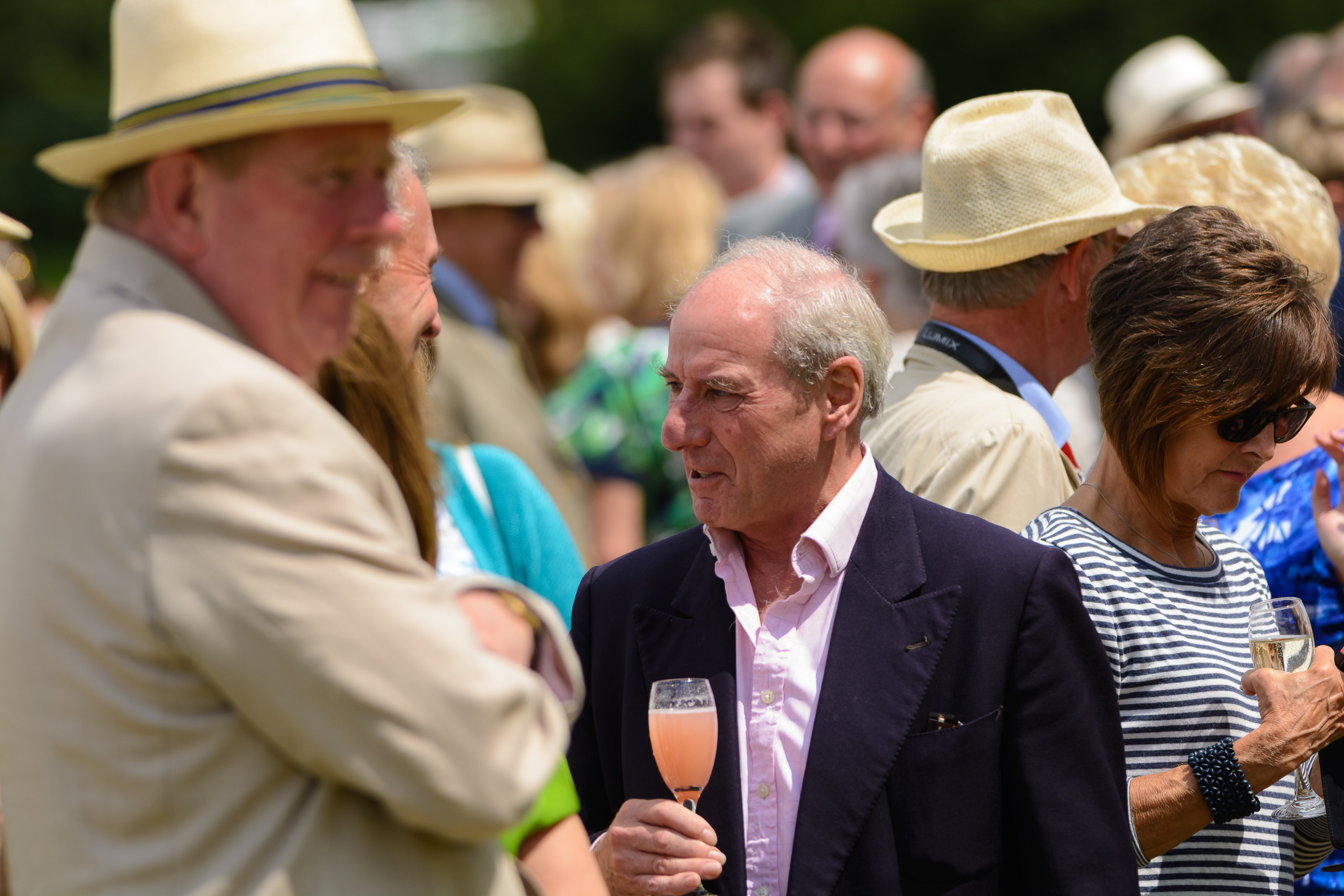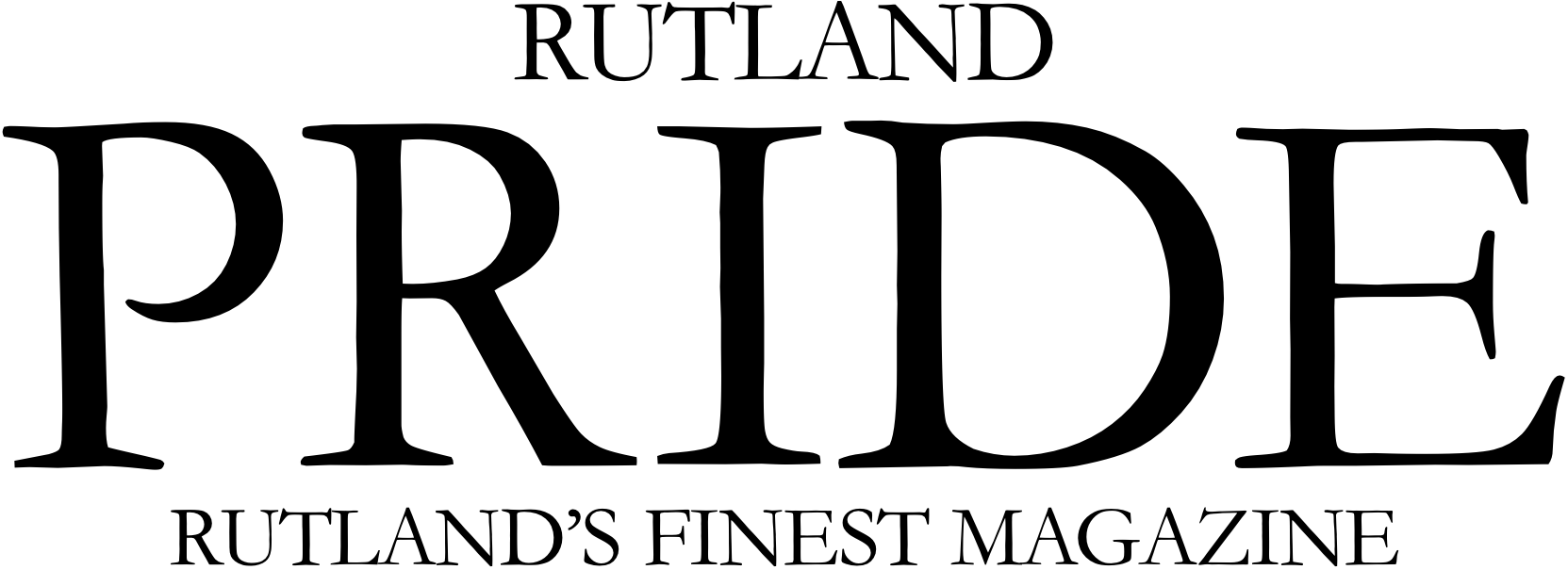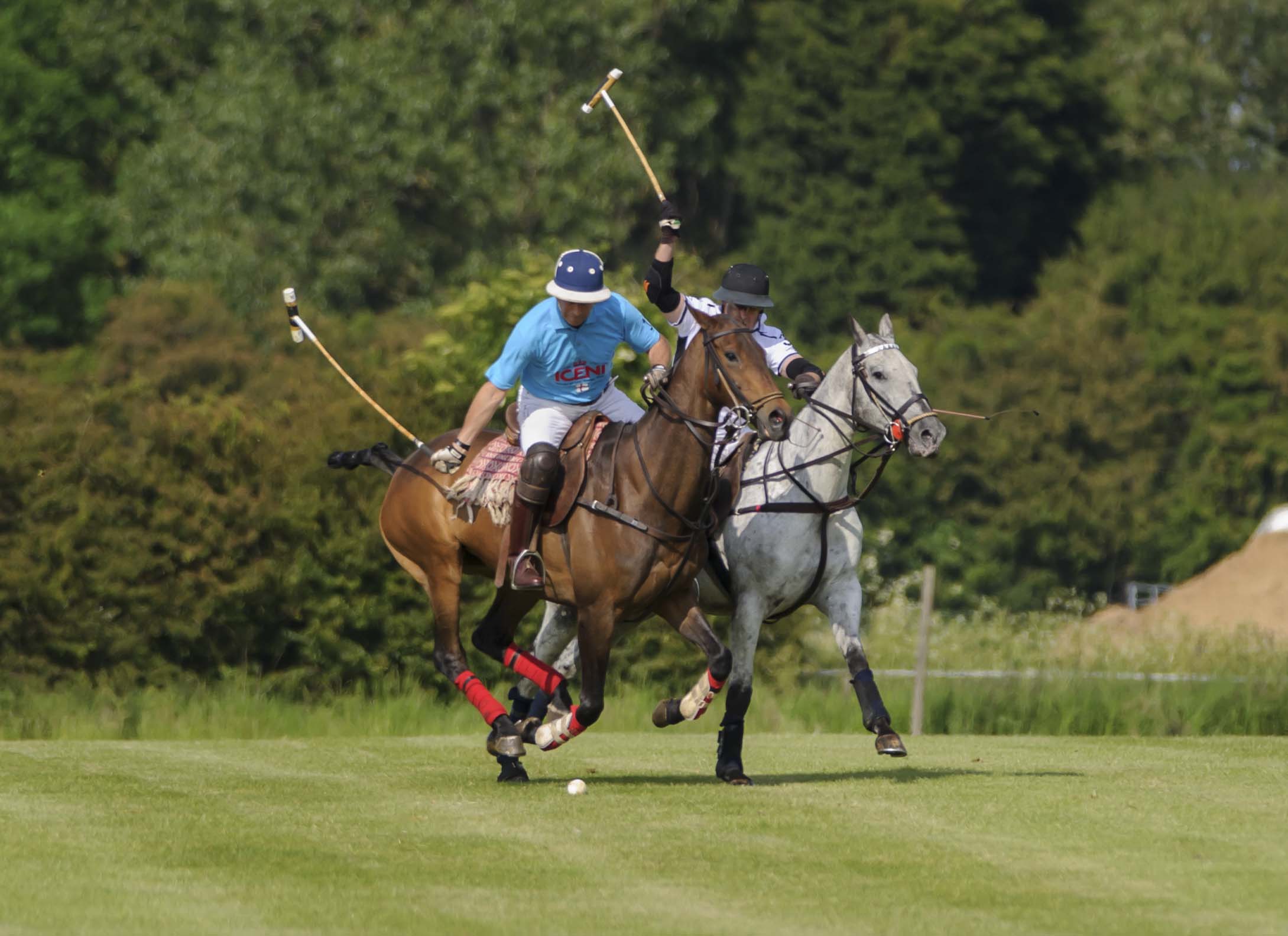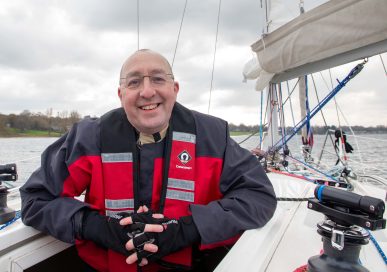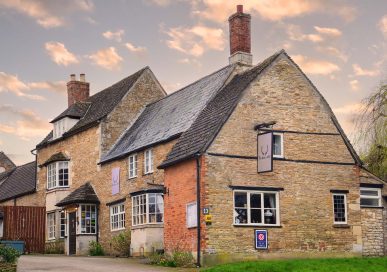Highlights
The Sport of Kings – Polo in Rutland
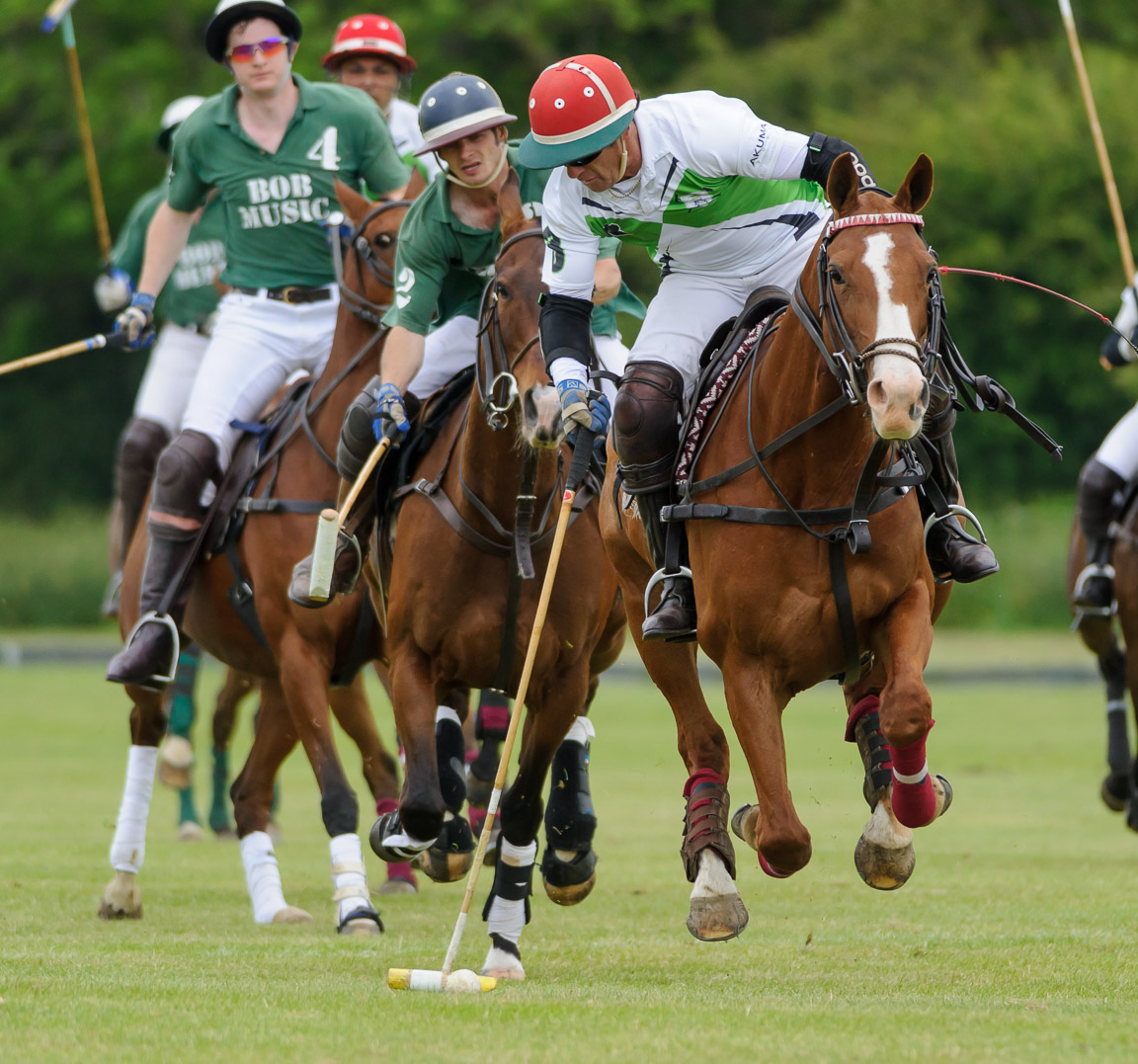
The Rutland Polo Club is one of the highlights of this area, a magnificent sport played in an equally magnificent setting. It’s also more accessible than you might think, to play and to watch. Here, we give you the low down on the fantastic sport of polo and all the actions and events happening right on your doorstep.
The equine population in Rutland exceeds that of most counties in the UK. In addition to hosting The Burghley Horse Trials every year, the area is also the territory for the Cottesmore Hunt, one of the oldest
foxhound packs in Britain. On top of these proud boasts, Rutland has its own Polo Club, home to some of Britain’s best players and has welcomed royals for a game.
Polo is a team sport played on horseback. The objective is to score goals against an opposing team. Players score by driving a small white wooden ball into the opposing team’s goal using a long-handled mallet.
Each polo team consists of four riders and their mounts. The game is played professionally in 16 countries and it was
formerly an Olympic sport.
It was brought to Rutland in 1971 by eight friends and founders of the club. They were all keen riders and were looking for a spot of entertainment outside of the hunting season. Edwin de Lisle is the club’s only remaining founder.
“We were all mad on hunting,” says Edwin. “The problem was, the hunting season only lasted from October to March. We needed something to keep us entertained during the summer months, so we decided on polo.”
“The nearest club to Rutland was at Melton Mowbray in 1909, having been raised by Col EH Baldock. He had commanded The City of London Yeomanry ‘Sharp Shooters.’ They first played near Sysonby Lodge and later at Brentingby.”
“After the First World War, polo was played but the Club ceased to function in the 1930s. In 1971 Colonel Tony Gilks, Major Charlie Humfrey, Mike Seckington, other local enthusiasts and myself started up the present Club which was recognised by the Hurlingham Polo Association in 1972.”
“Play was originally at Luffenham Airfield and then moved to Cream Gorse and the Oakham Showground,” says Edwin. “In 1993 we gave up renting the Rutland Showground and made a second polo ground at Langham.”
Rutland’s tournaments have become very popular and many teams come from across the country to compete.
“Many former Rutland Polo Club members are now medium and high goal players in top polo competitions across the country,” says Edwin. “His Royal Highness the Prince of Wales has played at the Club and more recently, in May 2002, Prince Harry played at Rutland in the Eton vs Uppingham schools match.”
The mounts used are called polo ponies, although the term pony is purely traditional and the mount is actually a full-sized horse. They range from 14.2 to 16 hands, and the polo pony is selected carefully for quick bursts of speed, stamina, agility and manoeuvrability. Temperament is critical; the horse must remain responsive under pressure and not become excited or difficult to control.
Many are Thoroughbreds or Thoroughbred crosses. They are trained to be handled with one hand on the reins, and to respond to the rider’s leg and weight cues for moving forward, turning and stopping. A well trained horse carries its rider smoothly and swiftly to the ball and can account for 60 to 75 per cent of the player’s skill and net worth to his team.
“There are four players per team and when we used to play, you would pick your three closest friends to join you,” says Edwin. “Nowadays, the sport is more competitive and participants hire people in to play for them with big cash prizes if they win.”
Shortly after the formation of the club, the first trophy now known as the Assam Cup was acquired. The cup was a large and splendid example of Victorian silver, originally commissioned as a challenge cup by a club located in the Assam area of India.
“When polo ceased in India, a man named Leetham returned to the UK and brought the cup with him, offering it to the Hurlingham Polo Association. As Rutland had been formed only recently, it was suggested that we might have the cup.”
The Westerby Group Assam Cup sponsored by Westerby Investment Management was played for in June this year. Winners receive the cup and magnum bottles of Pol Roger champagne, one of the finest champagnes in the world.
Other cups at the club include the Rutland Cup, the Flindlay Cup, the Ruddles Cup and the Whitbread Cup, all for their own individual tournaments played throughout the year.
In August, there’s the Escalina Ladies Open, The Hartropp Trophy and The Sandicliffe Cup amongst others.
If you’re a rider and you want to compete or learn to play polo, speak to a qualified instructor that is registered for polo training.
“Polo ponies are extremely sensitive and highly tuned,” says Edwin. “Any small shake or movement may take the horse off in a different direction to where you want them to go. It’s a difficult sport and its great entertainment to watch them play to such a high level of skill.”
The ponies at Rutland are from Argentina, South America, New Zealand and Australia.
The game is played in chukkas; a division in a game of polo. The game consists of four seven and a half minute chukkas, between or during which players change mounts. Players need more than one horse to play, as it’s a very tiring sport for the animals.
At the end of each seven minute chukka, play continues for an additional 30 seconds or until a stoppage in play, whichever comes first. There is a three minute interval between chukkas and a five minute halftime.
Play is continuous and is only stopped for penalties, broken tack or injury to horse or player. The object is to score goals by hitting the ball between the goal posts, no matter how high in the air. If the ball goes wide of the goal, the defending team is allowed a free knock-in from the place where the ball crossed the goal line, thus getting the ball back into play.
Each position assigned to a player has certain responsibilities. Number One is the most offence-oriented position on the field. The Number One position generally covers the opposing team’s Number Four.
Number Two has an important role in offence, either running through and scoring themselves, or passing to the Number One and getting in behind them. Defensively, they will cover the opposing team’s Number Three, generally the other team’s best player. Given the difficulty of this position, it is not uncommon for the best player on the team to play Number Two so long as another strong player is available to play Three.
Number Three is the tactical leader and must be a long, powerful hitter to feed balls to Number Two and Number One as well as maintaining a solid defence.
The best player on the team is usually the Number Three player, usually wielding the highest handicap. The best players in the world will have a handicap of 10, and all beginners will start with a handicap of -2.
Number Four is the primary defence player. They can move anywhere on the field, but they usually try to prevent scoring. The emphasis on defence by the Number Four allows the Number Three to attempt more offensive plays, since they know that they will be covered if they lose the ball.
Interestingly, polo must only be played right-handed; you can’t play the sport if you’re left handed. It’s been known that
determined players will tie their left hand behind their back in day-to-day life to force themselves into being right handed!
In July, Rutland Polo Club supported an armed forces charity in line with WWI centenary events. If you would like to see a game in action, visit the club’s website to see what events are coming up on the calendar and simply turn up to watch. There is no fee to watch, but you can book lunch which is £30 for non-members and £25 for member.
2018 Club Calendar:
The Belvoir Cup, 28th – 28th July
The Preston Lodge Bowl, Sponsored by The Weatherby Family, 28th – 29th July
The Ruddles Cup, 25th – 26th August
The Sandicliffe Cup, 18th – 19th August
The Hartropp Trophy, 18th – 19th August
Escalina Ladies Open, 18th – 19th August
For more information, please call 07870 212902 or visit the club’s website at www.rutlandpoloclub.co.uk. The photos across this feature are by Nico Morgan. Visit www.nicomorgan.com or call 07515 029261.
